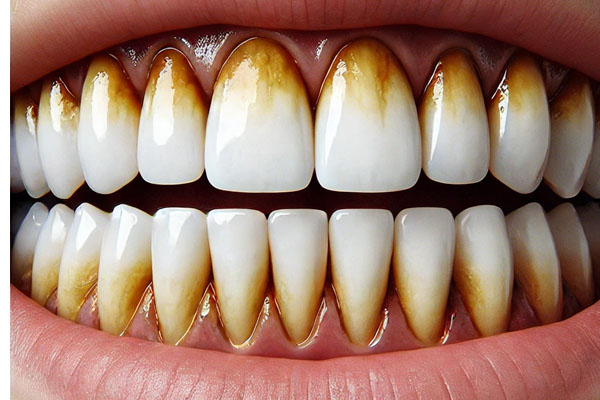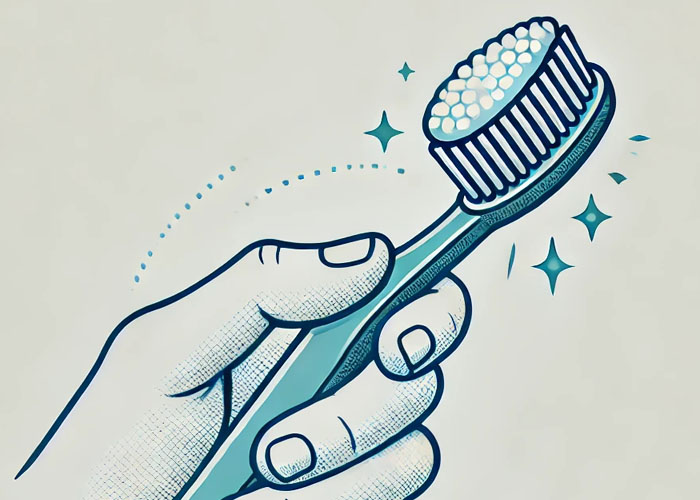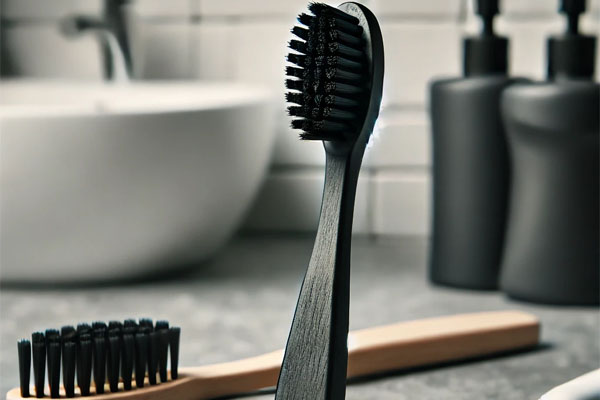As we get older, it’s natural to notice that our teeth may not look as bright or white as they used to. In fact, one of the most common concerns people have is that their teeth darken over time. While this can be a frustrating change, the good news is that there are plenty of ways to understand and combat this process.
This article will explain why teeth darken with age, the factors that contribute to this change, and most importantly, what you can do to restore your smile’s youthful brightness.
What Causes Teeth to Darken with Age?
There are several reasons why your teeth darken as you get older, and understanding these causes can help you find the right solution to brighten your smile.
1. Natural Wear and Tear
Over the years, your teeth experience natural wear and tear. The outer layer of your teeth, called enamel, is the protective barrier that gives teeth their white appearance. However, as you age, this enamel gradually wears down, exposing the yellowish layer underneath known as dentin. This will make teeth appear darker.
2. Stains from Food and Drink
As we go through life, the foods and beverages we consume can leave behind stains that gradually build up on the surface of our teeth. Dark-colored drinks like coffee, tea, red wine, and even sodas are notorious for causing teeth to stain. The tiny particles in these drinks cling to your enamel, which becomes more porous with age, allowing the stains to settle in more easily.
3. Smoking and Tobacco Use
Smoking or using tobacco is a major contributor to why teeth darken over time. The nicotine and tar found in tobacco quickly adhere to tooth enamel, causing brown or yellow stains that are difficult to remove. The longer you use tobacco, the more noticeable these stains become, leading to significant discoloration.
4. Thinning Enamel
As we age, our enamel naturally becomes thinner, making the teeth more vulnerable to stains and discoloration. Thinning enamel also allows the dentin underneath to become more visible. Dentin tends to darken with age, contributing to the overall appearance of darker teeth.
5. Medications and Medical Conditions
Certain medications and medical treatments can also cause teeth to darken. For instance, antibiotics like tetracycline, especially when taken during childhood, can lead to permanent tooth discoloration. Other treatments like chemotherapy and radiation therapy for cancer can also affect the color of your teeth.
6. Poor Oral Hygiene
As you get older, maintaining consistent oral hygiene becomes even more crucial. Plaque and tartar buildup over time can lead to tooth discoloration. If you’re not brushing and flossing regularly, these deposits will harden on your teeth, causing them to appear dull and yellow.

How to Prevent Teeth from Darkening
Now that we’ve explored the reasons why teeth darken with age, let’s look at how you can prevent this from happening or minimize the effects.
1. Practice Good Oral Hygiene
The best way to keep your teeth white and healthy as you age is by practicing good oral hygiene. Brushing twice a day with fluoride toothpaste, flossing daily, and visiting your dentist regularly for cleanings can go a long way in preventing tooth discoloration. By keeping your teeth clean and free from plaque buildup, you’ll help reduce the chances of your teeth darkening over time.
2. Limit Stain-Causing Foods and Drinks
To reduce the risk of tooth stains, it’s important to limit your consumption of foods and drinks that are known to cause discoloration. Cutting back on coffee, tea, red wine, and sugary sodas can make a big difference. If you can’t avoid these beverages, try using a straw to minimize contact with your teeth, or rinse your mouth with water afterward to wash away stain-causing particles.

3. Quit Smoking
If you smoke or use tobacco products, quitting is one of the best things you can do for your dental health. Smoking not only darkens your teeth, but it also increases the risk of gum disease and other serious health problems. Kicking the habit will not only keep your smile brighter but also improve your overall well-being.
4. Use Whitening Toothpaste
Whitening toothpaste can help remove surface stains and prevent your teeth from darkening further. Look for a toothpaste that contains gentle abrasives to scrub away stains without damaging your enamel. Using whitening toothpaste consistently can make a noticeable difference over time, keeping your teeth looking whiter and brighter.
5. Professional Teeth Whitening Treatments
For those who are already experiencing significant discoloration, professional teeth whitening treatments may be the most effective option. Your dentist can offer in-office whitening procedures that provide quick and dramatic results. There are also take-home whitening kits that can gradually lighten your teeth over several weeks.
6. Dental Veneers
In cases where tooth discoloration is severe and resistant to other treatments, dental veneers can provide a permanent solution. Veneers are thin shells made of porcelain or resin that cover the front surface of your teeth, instantly giving you a whiter and brighter smile. This option is ideal for those who want to address both discoloration and other cosmetic concerns.
How to Reverse Tooth Discoloration
If you’re already dealing with darker teeth due to aging, there are steps you can take to reverse the process and restore your smile’s brightness.
1. Consider Over-the-Counter Whitening Products
There are many over-the-counter whitening products available, such as whitening strips, gels, and rinses. These products can help remove surface stains and brighten your teeth over time. However, they may not be as effective as professional treatments, so it’s important to manage your expectations.
2. Talk to Your Dentist About Whitening Options
For more stubborn discoloration, it’s best to consult your dentist about professional whitening options. In-office treatments use stronger whitening agents that can lighten your teeth several shades in just one visit. If you’re looking for fast and noticeable results, this is the way to go.
3. Replace Old Fillings or Crowns
Sometimes, older dental work like fillings or crowns can become discolored over time, contributing to the overall darker appearance of your teeth. If this is the case, talk to your dentist about replacing these restorations to match the current color of your natural teeth.
Conclusion
While it’s natural for teeth to darken with age, there are plenty of ways to prevent and reverse discoloration. By understanding the factors that contribute to this change and taking proactive steps, you can maintain a brighter, more youthful smile well into your later years.
Whether you’re looking to prevent further darkening or seeking solutions to restore your teeth’s original brightness, taking care of your oral health is key. Remember, a bright smile not only boosts your confidence but also reflects good health. So, take the necessary steps today to keep your smile shining!

